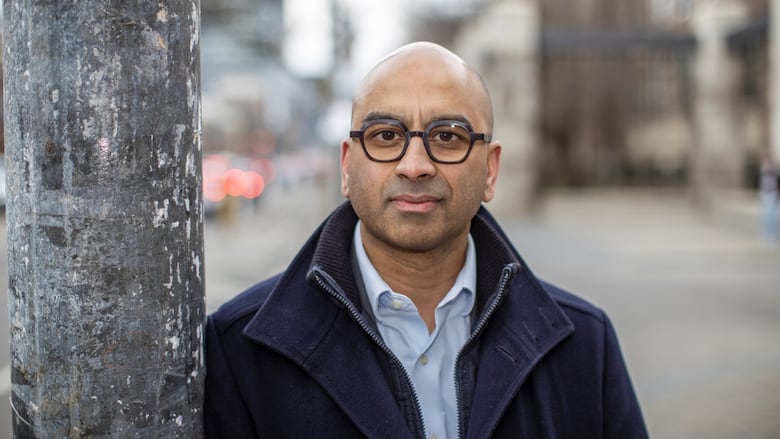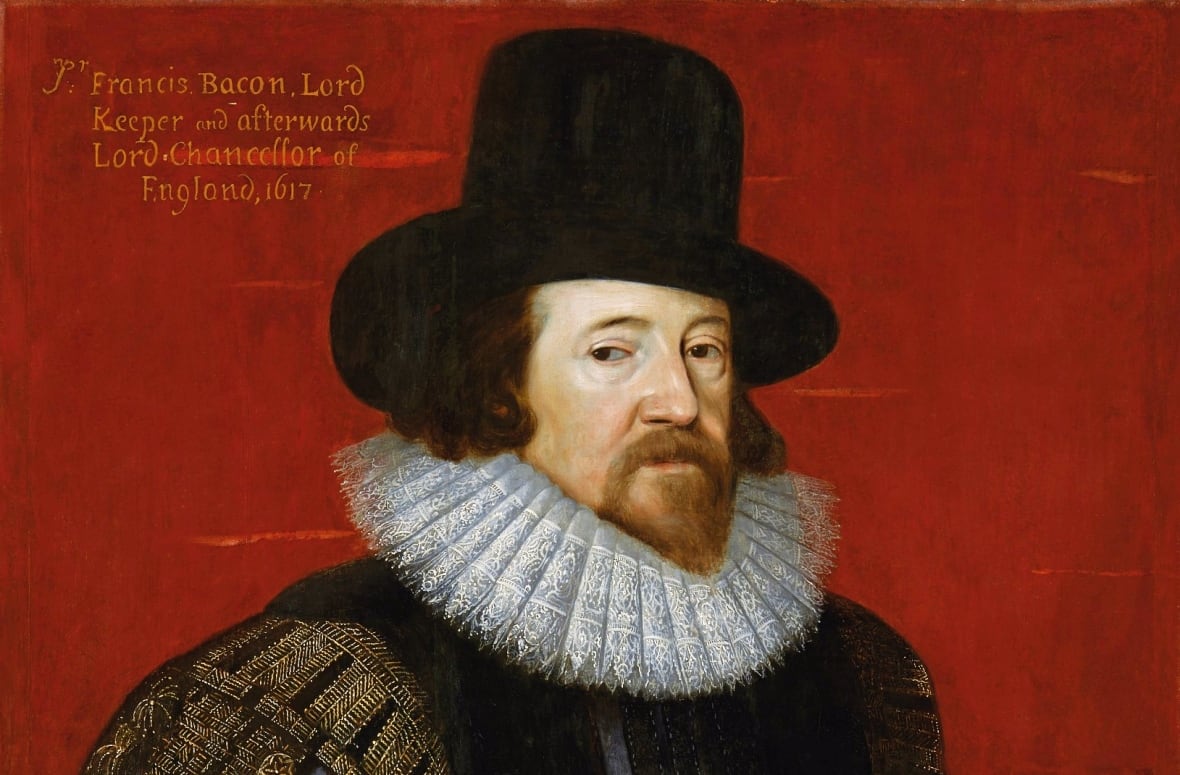Campus convulsions since Oct. 7 prompt an ancient question: what's a university for?
Civil Discourse Advisor Randy Boyagoda argues universities must be a place to think out loud together


*Originally published on Oct. 7, 2024.
In the year since the October 7 attack by Hamas on Israel, and Israel's reprisals in Gaza, university campuses throughout the West, particularly in Canada and the U.S., became a polarizing flashpoint over the ongoing conflict. Universities experienced protests, counter-protests, encampments, physical altercations and in some cases, police interventions and arrests. University leaders were publicly criticized. Some resigned. Major donors withdrew funds. And throughout much of it, civil conversation seemed impossible.
Swirling through all the controversies was one question that Randy Boyagoda, a novelist and English professor at the University of Toronto, posed at a public event organized by the Humanities Research Group at the University of Windsor.
Simply: what are universities for?
After posing the question, he made two predictions: the first, that there'd be as many different answers to it as there were people listening to his talk.
"And I'll predict one more thing," he added. "Anyone who has an answer to the question of what a university is for is currently not satisfied with universities living up to their purpose. No matter what you think that purpose is or should be."
Randy Boyagoda is in a unique position to make his case for what a university could and should be. In January 2024, partly as a response to the protests and counter-protests, he was appointed the university's advisor on civil discourse — the first position of its kind in Canada.
"The events of October 7th and thereafter didn't create the need for civil discourse," he observed. "Those events only revealed dramatically its absence. In other words, civil discourse on university campuses wasn't exactly robust and healthy on October 6th, 2023."
Thinking out loud together
Boyagoda recalls an incident that took place long before October 7, one that crystallized his thinking about the role of the university.
He was dining with undergraduates and the conversation turned to the issue of cultural appropriation. His position is self-described as "middle of the road." But the student he was talking with was absolute in her stance that there is no instance in which Indigenous cultures can ever be appropriated.
The discussion was honest, intense, and direct. "I was thinking: this is what university is all about. Here we are in this beautiful dining hall, breaking bread and thinking out loud together about something that matters," he recalled.
But then something happened to alter the course of their exchange. Another student was videotaping them.
"The feeling of gratitude I'd had just moments earlier vanished. In its place, I felt anxiety, even dread.... I had no idea how this exchange was going to be edited or shared. What if it went viral? And so the conversation ended quickly. Or more accurately, I ended the conversation quickly."
Epistemic skepticism
During his talk, Boyagoda asked the audience to consider this critical observation about universities:
"I find it strange that they are all dedicated to professions and none left free to arts and science at large. Because there is no university education, which is free, where students might give themselves to study histories, modern languages, books of policy and civil discourse."
That complaint sounds as though it could have been made yesterday. In fact, it was made in 1605 by the English thinker and essayist Francis Bacon, in a treatise entitled The Advancement of Learning. If Bacon's criticism of the university still sounds contemporary, that's because it is — the university has always attracted criticism.
"Everyone, everywhere, at every time, has an idea of the university that never, ever finds satisfying correspondence in the reality of any university, anywhere, at any time," Boyagoda said.

For Boyagoda, civil discourse doesn't merely mean polite conversation. It means something more — something he calls "epistemic skepticism," to check the assumption that our lived experience, well-formed arguments, or even knee-jerk responses are all there is to any given matter.
We know what we know, he acknowledges, but we don't necessarily know all that there is that needs to be known. He also acknowledges that the discipline of being skeptical of the ultimacy of one's own beliefs, convictions and opinions, while remaining open to other points of view may at times be impossible. But he adds it's an ideal to strive for if the university is to be a place where we can truly think out loud together.
Following his lecture, Randy Boyagoda joined IDEAS host Nahlah Ayed onstage.
Here is an excerpt from their conversation:
So [epistemic skepticism] is one requirement that you say [is needed] for us to get to a state of civil discourse. I also thought maybe it was important for us to go over again the difference between the idea of civil discourse and politeness. Can you just define and explain the difference between those two things?
I'm convinced that one of the challenges for civil discourse is a misunderstanding of it as workplace civility — rules in order to have a difficult conversation. That strikes me as a form of over-determining what you're allowed to speak about and who's allowed to speak, whereas there has to be at base, consistent with humility of uncertainty, with civil discourse. I'm not sure that's why I'm speaking with you together. Maybe we'll get somewhere better. That strikes me in a very informal way as a working definition of civil discourse, as opposed to rules that if you offend them, you've offended the person. And then we're going to report you to HR. That strikes me as the politeness version of things.
So given that, would you say the civil discourse precludes protest?
No, I don't think it does. Perhaps more importantly, civil discourse doesn't have to cover every function in every activity at a university or in our public life. If that were the case, then you'd have to water it down to mean nothing, or you'd have to use it as a form of control. Universities have always been places of protest and dissent.
In other words, it isn't [the following]: if it's not civil discourse, it can't happen. It's more like: what does civil discourse contribute to the shared life of an academic community that otherwise wouldn't be there?

But unlike other periods of protest like during the Vietnam war, these are protests that we have seen since October 7th that add the university to the list of complaints. Not only is the university the locus of a protest, but it's also the subject of, or partly the subject of, the protest. How does that conversation change when those two things are true? Both that it's the place where the protest is happening, and it's also the subject.
It's a superb way to put it… So I think without taking away from the real time high stakes of post-October 7th criticisms of the university and within the university, the university criticizing itself constantly, members criticizing itself, this is what I meant: no one is ever satisfied with the university. Please find me anyone who says this is exactly what a university should be, and I'm happy with it as it is right now. An impossibility. It's been made that much more convulsed since then.
Universities have some responsibility for this because of the message that they've given the world at large in recent years. On questions of climate, after George Floyd, in the context of the war in Ukraine — in all of these ways, universities understood themselves as institutional actors making statements, encouraging, in some ways, protest. And now that really has doubled back.
It speaks to the fraught question of institutional neutrality. A reasonable person would say: but for years, you've been telling us to protest. For years, you've been protesting as a university. What's wrong now?
Given that you'd like to see more civil discourse, how does that impact other important values on campuses like freedom of expression and freedom of thought... and academic freedom?
I think freedom of thought is there. It's how it's articulated. It's articulated sometimes in freedom of speech, sometimes in academic freedom in those two contexts.
I don't think civil discourse needs and should cover everything. I think that would have a neutralizing effect on conversations on campus. There always needs to be a tension between these concepts, rather than going all-in for just one of them.
It's easier to just say everything has to be academic freedom, everything has to be civil discourse, everything has to be freedom of speech — compared to finding and living within the tension of all three of those things.
After Randy Boyagoda's lecture, he answered some questions from the audience:

Download the IDEAS podcast to listen to this episode.
*Q&A edited for clarity and length.This episode was produced by Greg Kelly.